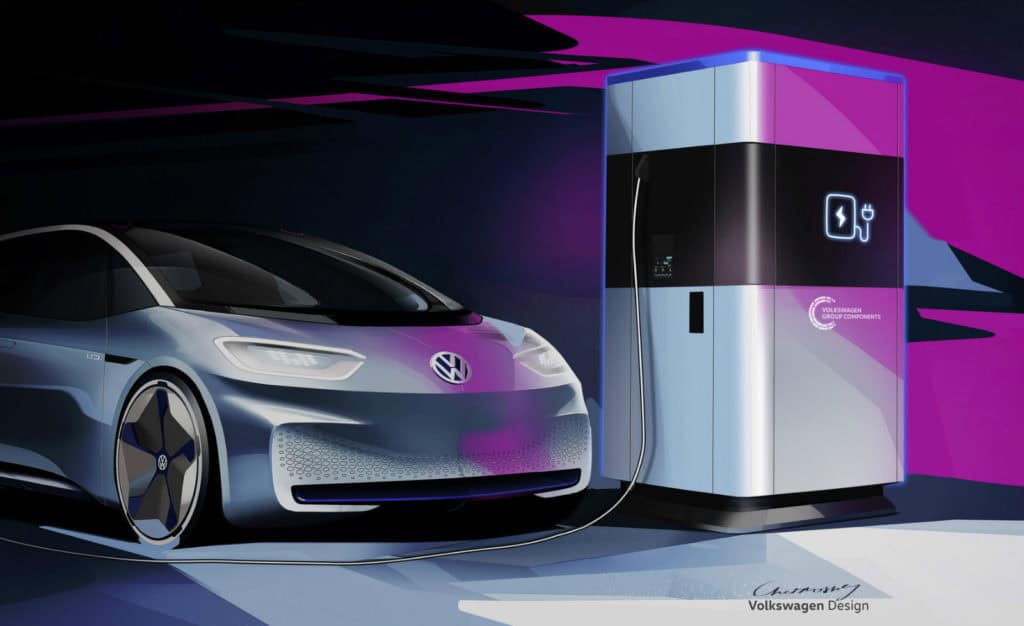
It’s pouring $870 million into the initiative.
Volkswagen’s been trying to claw back its credibility with an ambitious commitment to EVs ever since its $18.2 billion dollar emissions scandal. Its lofty production goals aside, the German manufacturer’s latest green move could see it kickstart Europe’s car battery industry. In back-to-back announcements, VW said today that it will start building car batteries — as well as recycling old cells — and mobile EV charging stations (which are heading to the streets of its hometown of Wolfsburg in the first half of this year). VW is promising to pump $870 million (£754 million) into the venture by 2020.
“Thanks to our manufacturing depth and product strength, we can measure ourselves with our best competitors. We are now sharpening our profile in the e-mobility field,” said Thomas Schmall, head of Volkswagen Group Components.
The company previewed its mobile charging station last month, whose 360kWh charging capacity and 100kW DC quick charging can sustain up to 15 EVs in an average time of 17 minutes. VW said the charging stations for electric cars will be produced at its plant in Hanover, Germany — which will stop making the regular engines and castings it currently makes in 2026 — helping to “contribute to safeguarding employment.” The charging stations will be rolling out to more cities in 2020 and VW’s ultimate goal is to reuse car batteries to power them, the company added.
The announcements follow a flurry of EV news from the auto-maker, including a pledge to open its first dedicated US EV factory at its existing facility in Chattanooga, Tennessee and a high-profile partnership with Ford on electric and autonomous vehicles.
Aside from being beneficial for the company, VW’s battery push could also turn out to be good for competition. The bulk of Europe’s batteries come from Asia, but a big regional player getting into the production game could help offset that reliance. And even push other auto-makers chasing the same electric dream to follow suit.


